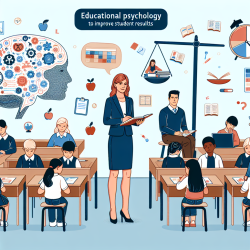In the world of education, understanding the "why" behind student performance and behavior is crucial. Teachers often find themselves attributing student success or failure to various factors, which in turn affects their teaching strategies and emotional responses. This blog delves into the findings of a systematic review titled A Systematic Review of Teachers’ Causal Attributions: Prevalence, Correlates, and Consequences, exploring how these attributions impact both teachers and students.
The Concept of Causal Attributions
Causal attributions refer to the reasons individuals assign to explain events or behaviors. In educational settings, these attributions can significantly impact teaching methods and student outcomes. According to Weiner’s attribution theory, attributions are categorized into three dimensions: locus of causality (internal vs. external), stability (stable vs. unstable), and controllability (controllable vs. uncontrollable).
Key Findings from the Research
The review analyzed 79 studies on teachers’ causal attributions since the 1970s, revealing several key insights:
- Prevalence of Attributions: Teachers often attribute student success to internal factors like effort or ability when it aligns with their expectations. Conversely, unexpected outcomes are attributed to external factors like instructional methods.
- Impact on Teacher Emotions: Teachers experience emotions such as pride or guilt based on their attributions. For instance, attributing a student's failure to lack of effort may evoke anger, while attributing it to low ability might elicit sympathy.
- Influence on Student Outcomes: Teachers’ attributions affect their feedback and instructional strategies. For example, attributing failure to low effort might lead to more corrective feedback compared to failure attributed to low ability.
- Moderating Factors: Experience level influences attribution styles; novice teachers may attribute more student failures to their teaching methods compared to experienced teachers who might focus on uncontrollable factors like family background.
Practical Implications for Educators
Understanding these attribution patterns can help educators develop more effective teaching strategies and improve classroom dynamics. Here are some practical steps educators can take:
- Reflect on Attributions: Regularly assess your own attribution styles and consider how they influence your teaching practices and interactions with students.
- Encourage Growth Mindset: Promote a growth mindset in students by emphasizing effort over innate ability in your feedback.
- Professional Development: Engage in professional development opportunities focused on attribution theory and its application in educational settings.
- Cultural Sensitivity: Be mindful of cultural differences that may affect attribution styles and strive for inclusive teaching practices.
The Road Ahead: Encouraging Further Research
The systematic review highlights the need for continued research into teacher attributions. Future studies should explore the direct impact of teacher attributions on student outcomes by collecting data from both teachers and students simultaneously. Additionally, research should investigate how attribution-based interventions can enhance teacher motivation and well-being.
The insights gained from understanding teacher attributions can lead to more supportive educational environments where both teachers and students thrive. By fostering awareness and encouraging adaptive attribution styles, educators can contribute positively to student development and their own professional satisfaction.
To read the original research paper, please follow this link: A Systematic Review of Teachers’ Causal Attributions: Prevalence, Correlates, and Consequences.










